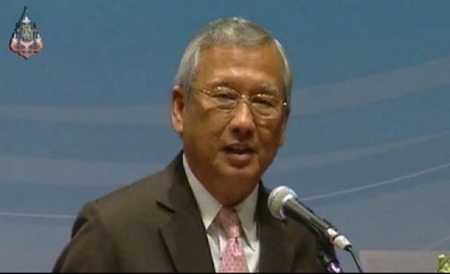BANGKOK, Dec 11 – The Philippines was asked to buy more rice from Thailand after importing less than the annual quota of 100,000 tonnes this year, a Thai Cabinet member said today.
Niwatthamrong Boonsongpaisarn, caretaker deputy premier/commerce minister, said the proposal was made to Philippine Secretary of Trade and Industry Gregory Domingo on the sidelines of the World Trade Organisation meeting last week.

He also asked the Philippines to lift its ban on imported chicken meat from Thailand, imposed since the bird flu pandemic several years ago.
Philippine officials have given a green light to importing Thai chicken meat again after inspecting the farms in Thailand several times, but the ban has yet to be removed, Mr Niwatthamrong said.
The Philippine minister will visit Thailand on December 20 , he said, noting that the neighbouring country would possibly import 20,000-30,000 tonnes of chicken meat from Thailand each year.
He received a letter from the Philippine minister requesting an acceleration of a court case on cigarettes and promised to forward it to an agency concerned.
Mr Niwatthamrong also held talks with Canadian International Trade Minister Edward Fast, seeking an extension of the Thai-Canadian generalised system of preferences which is due to expire on January 1, 2015.
The free trade agreement between the two countries has yet to finalise pending an approval by the Thai Parliament, he said.
Mr Niwatthamrong informed the Canadian minister that Thailand was concluding its investigation on the ban on import of pork from Canada after finding ractopamine in the produce.
The Thai minister explained that the ban was to protect Thai consumers and in accord with international regulations.
In his meeting with Israeli Economy Minister Naftali Bennett, Mr Niwatthamrong said Thailand and Israel agreed to discuss a free trade agreement in a bilateral trade meeting scheduled for the first quarter next year.
Thailand asked Israel to support the exploration of natural gas in its territory and offered the kingdom as a window for Israeli investment in Southeast Asia, he said.




